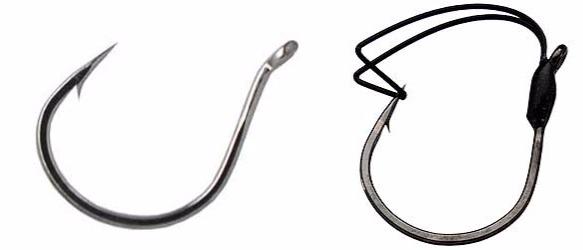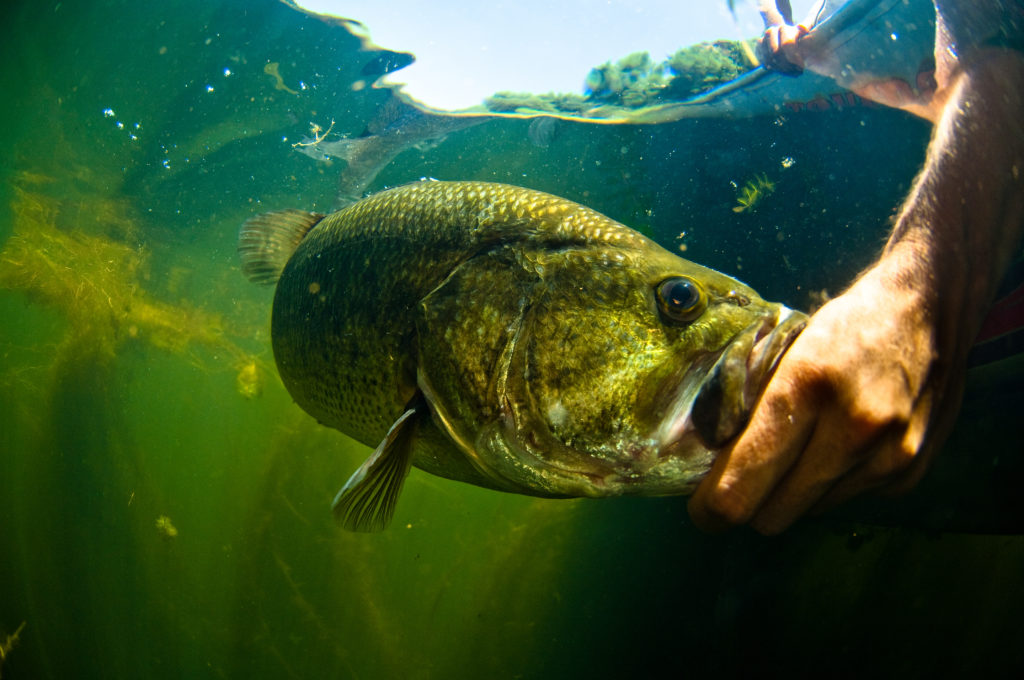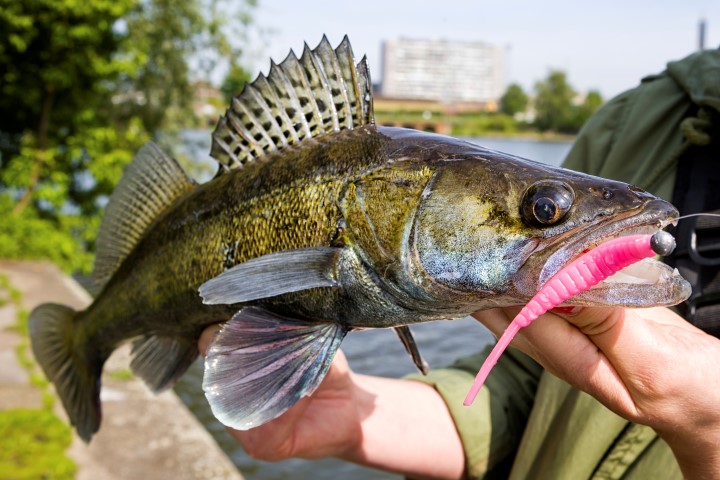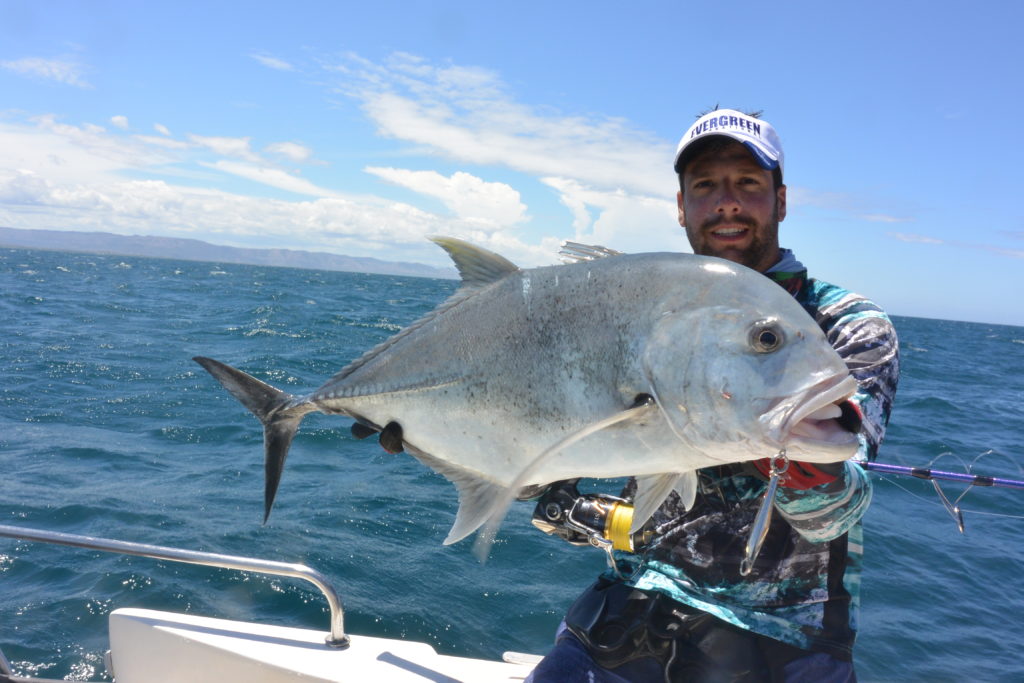Wacky fishing is as simple as it is effective. It involves hooking a soft worm-shaped lure through the middle of a hook with or without a weight. Having the hook in the middle allows both ends of the lure to vibrate at the same time as it sinks. The subtle vibration produced by a wacky lure is a black bass magnet, making this technique so popular. Which lure to use? What tackle should I use? Which animation to use? Here's everything you need to know about wacky fishing.
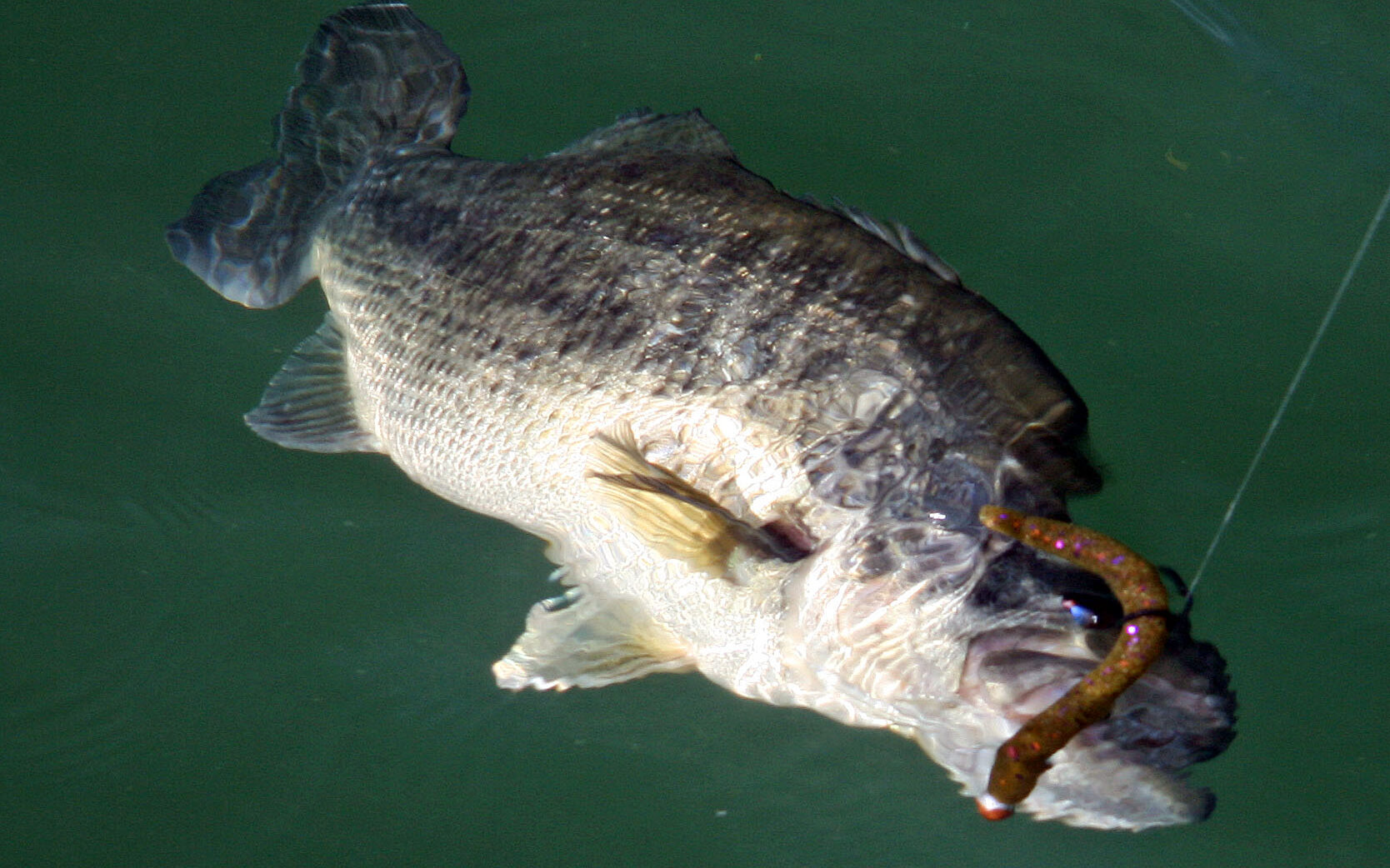
History and principle of wacky fishing
The wacky fishing is a fishing technique that originated in New Jersey in the United States.. Anglers have simply seen an incredible increase in catches by hooking soft lures in the middle and letting them fall freely. Known as the Jersey Rig, the wacky fishing was born.
The Wacky fishing is a technique that is as rudimentary as it is effective once you're on the water.. The principle of this fishing technique is to cast a soft lure in the shape of a worm or finesse in the middle or slightly offset. Once mounted, cast and let the wacky lure sink. You'll see that it produces a unique swimming action. The two ends of the lure produce a subtle vibration that attracts black bass and other predators.
Unlike a traditional rig where only the rear of the lure is animated, here both sections are in motion. The vibration is doubled and the feeling of naturalness is increased tenfold.
Wacky fishing is a safe bet for stealth fishing. The action of the lure is ultra natural on the way down and will fool old fish lying in wait on the edges of the weed beds.
How to fish with wacky?
Once you've set up your wacky lure, simply cast it over the area to be fished and simply let it sink as it goes down. Personally, we keep the pick-up open for the first few moments of descent to let the lure sink vertically in the most natural way possible. Just pull back from time to time to take up the slack and quickly maintain contact with the lure.
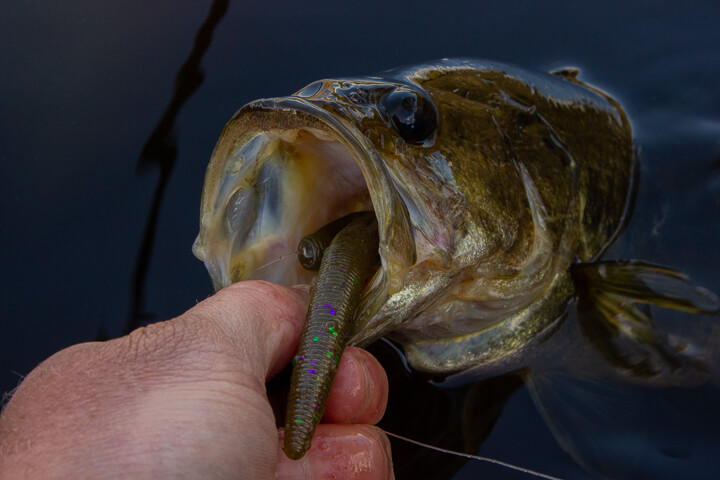
Once your lure is on the bottom, leave it to rest for a few seconds and then slowly animate it with light jerks. Bear in mind that bass and other predators will often pick up your lure from the bottom. So remember to let the lure rest on the bottom. Don't give the lure a strong movement from the outset.
Repeat this pattern on the area to be prospected and when you attack, you'll quickly see your line shift.
What equipment do you need for wacky fishing?
Often overlooked when it comes to tracking large fish and often associated with light fishing, the Wacky fishing is nevertheless the technique of choice for stalking big fish. So be sure to equip yourself accordingly.
You can use worms up to 25 cm and more. What's more, you'll tend to fish in more or less crowded areas. So don't hesitate to use powerful tackle, which is essential for fighting big black bass and extracting them from the cover.
As far as cane is concerned, we like to use rods from 180cm to 210cm in power M, MH. Powerful models designed for vertical fishing are perfectly suited to wacky fishing in crowded conditions.
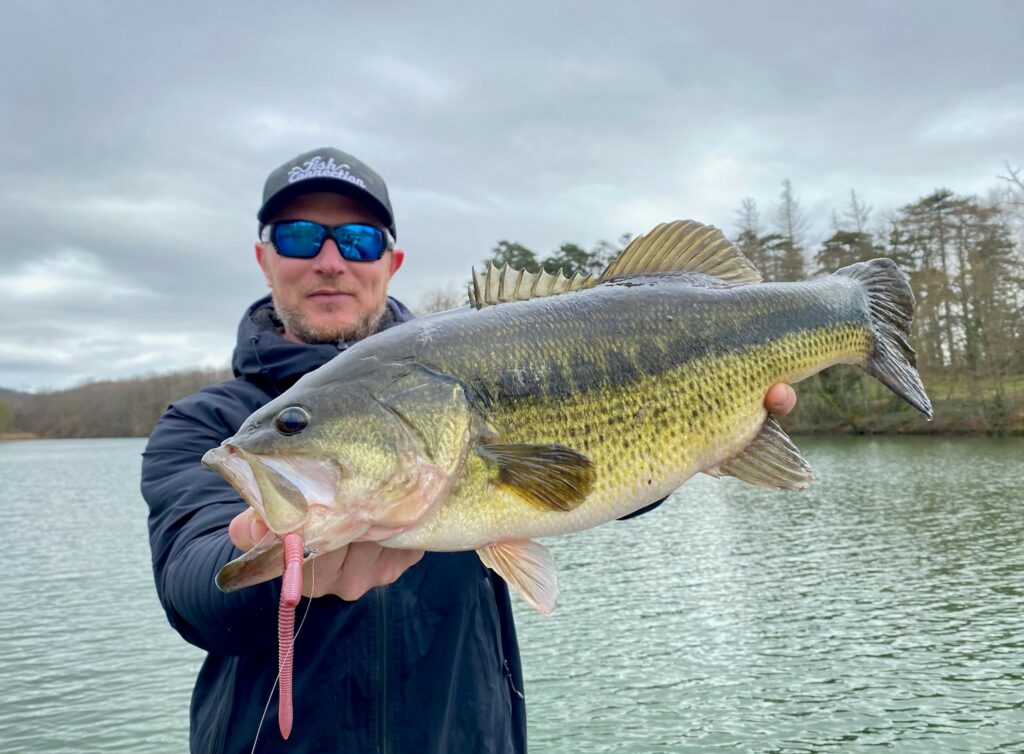
As far as the reel is concerned, we prefer one fitted with fluorocarbon in 10 lbs and over. This means you'll be comfortable extracting all types of fish quickly.
As far as hooks are concerned, we particularly like those with a round, wide shape, such as the VMC 7344 WK Wacky in version classic or weedless.
If you're using weighted hooks, we recommend the Zappu Inch Wacky I Guard, the jig head Japan's benchmark for the jighead technique wacky.
Finally, when it comes to lures for wacky fishingHere are a few references we can recommend to you with your eyes shut:
When and where to fish with wacky?
Wacky fishing works well all year round.. However, the key periods for us are the spring and autumn. In fact, these periods correspond to the times when black bass and other predators move into shallower water. This makes them ideal times for weightless wacky fishing.
Conversely, in summer and winter, the fish are found in deeper and/or congested areas. During these periods, we therefore prefer other techniques such as the Texan or the drop-shot.
When it comes to areas to wacky fish, we particularly like marked areas. Concentrate on areas such as pontoons, docks, edges, vegetation or under foliage. All these areas are generally very good places for bass to rest and hunt.
Useful links to complete this article on wacky fishing
Pike crankbait: 5 essential pike crankbaits
Pike jerkbait: our selection of 5 pike jerkbaits
Pike lures: 10 pike lures to have in your box of lures
The 10 best types of black bass lures

